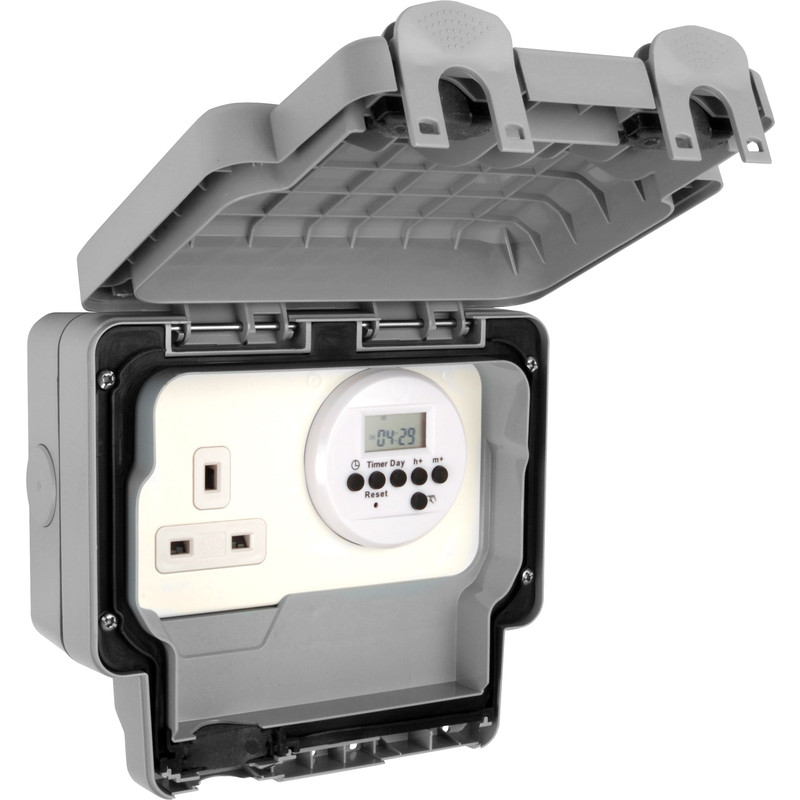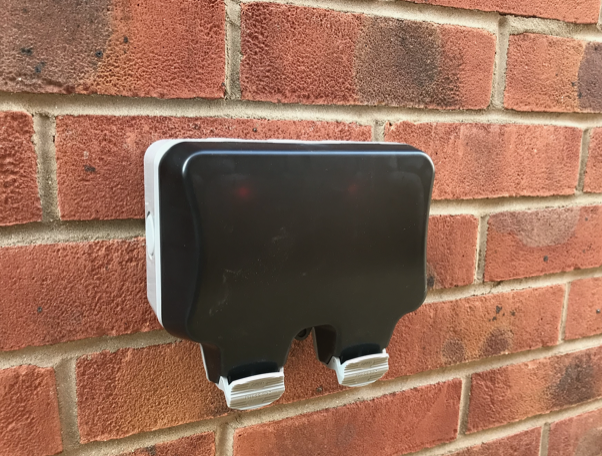- Joined
- 14 Oct 2015
- Messages
- 148
- Reaction score
- 4
- Country

Hi there, earlier in the summer, I had a double weatherproof socket professionally installed to my house. This is tapped off of a double socket inside of the house and is for mowers/strimmer.
I have got some mains operated garden lights and can see that the housing for my double socket is clearly not big enough to house a timer plug. Also, timer plugs are not designed to go outside.
I noticed that you can get weatherproof timer plugs such as this:

Is it possible to mount this on the wall next to the existing weatherproof socket and run it off of the existing one?
Image of existing one...

I have got some mains operated garden lights and can see that the housing for my double socket is clearly not big enough to house a timer plug. Also, timer plugs are not designed to go outside.
I noticed that you can get weatherproof timer plugs such as this:

Is it possible to mount this on the wall next to the existing weatherproof socket and run it off of the existing one?
Image of existing one...

